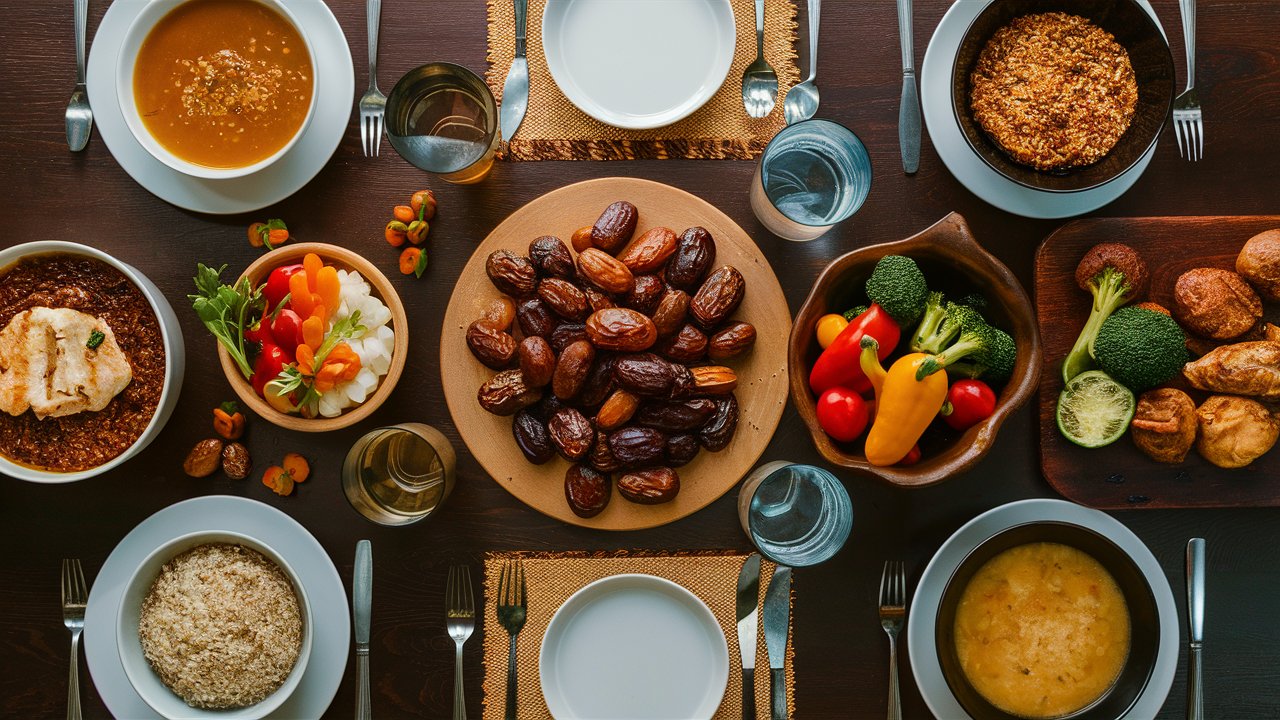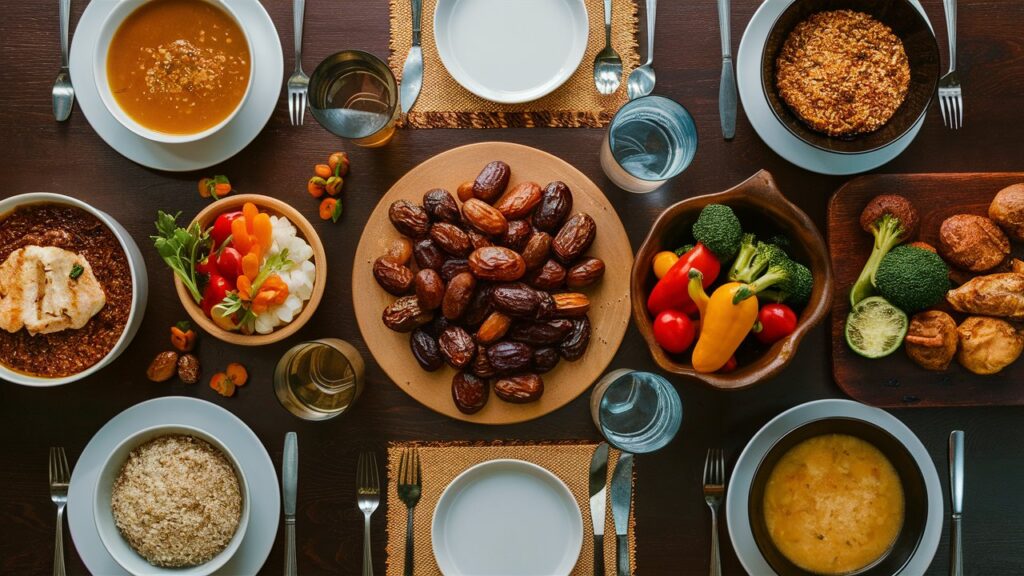
Fasting for Fitness? Ramadan and Healthy Habits
At the heart of Ramadan lies the spiritual practice of fasting, a time for self-discipline, reflection, and increased devotion to Allah (SWT). While mindful eating and healthy habits are valuable takeaways, the true priority remains setting the correct fasting intention (Niyyah) for a deeply rewarding Ramadan experience. However, incorporating mindful eating practices learned during Ramadan can significantly enhance your overall well-being throughout the year.
During Ramadan, Muslims naturally adopt a structured eating pattern with Suhoor (pre-dawn meal) and Iftar (evening meal). This structured approach encourages mindful eating habits – a key component of healthy living. Additionally, breaking the fast with a balanced, nutritious Iftar instead of indulging in unhealthy choices sets a positive tone for the rest of the day.
Meal Planning for a Ramadan Reboot:

Planning healthy Suhoor and Iftar menus is key to a successful Ramadan “health reset.”
Suhoor: Prioritize slow-digesting carbohydrates like whole grains and oats, protein-rich foods like eggs or yogurt, and plenty of hydrating liquids to sustain you throughout the day. Iftar: Start with dates for their natural sugars, followed by a balanced meal featuring vegetables, lean protein like chicken or fish, and whole grains like brown rice or quinoa.
Several online resources offer delicious and healthy Ramadan recipes to fuel your body and soul.
Staying Active During the Fast:

Staying active during Ramadan is important, but prioritize safe limits. Opt for low-impact exercises like walking, light yoga, or swimming before Suhoor or after Iftar, depending on your energy levels. Consulting a doctor before starting a new exercise routine, especially during fasting, is always recommended.
Making Ramadan’s Healthy Habits Last:
One of the most valuable takeaways from Ramadan is the emphasis on a balanced diet. Continue planning nutritious meals throughout the year, incorporating portion control and mindful eating practices for long-term well-being.
Fuel Your Journey with Lasting Change:
Embrace the positive takeaways from Ramadan and use them to cultivate lasting well-being. Set realistic goals for healthy eating and exercise, find an accountability partner for support, and celebrate small victories along the way. Several resources, including Muslim food blogs and Islamic fitness apps, can help you stay on track.
By viewing Ramadan as a springboard for healthy living, you can experience a positive impact on both your physical and spiritual well-being.
